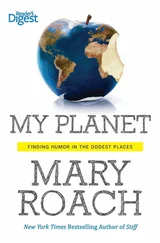DAY SIX OF GEMINI VII. Frank Borman is on the mic. The exchange is proceeding in the macho, jargony manner of pilot-to-ground communications. Until:
MISSION CONTROL: Stand by for the Surgeon, Gemini VII.
BORMAN: [silence]
MISSION CONTROL: Gemini VII, this is Surgeon. Have you had any dandruff problem up there, Frank?
BORMAN: No.
MISSION CONTROL: Say again.
BORMAN: N. O. No, negative!
Commander Borman did not wish to discuss skin care. But later, in his memoir, he would write about “our scalps” and about the case of “terminal dandruff” he had. Though it probably wasn’t, technically speaking, dandruff. Dandruff is caused by an inflammatory skin response to oleic acid, which the scalp fungus Malassezia globosa excretes after dining on your scalp oils. Either you’re sensitive to oleic acid or you’re not. If Borman didn’t have dandruff before he went into space, he didn’t have it afterward, says dermatologist Jim Leyden. Leyden once paid prisoners to not wash their hair for a month, specifically to see if they developed dandruff. They did not. The flakes on Borman’s head and skin were most likely the accumulation of millions of shed skin particles—particles normally washed away in the shower—mixing with sebum and clumping together.
The atmosphere in Antarctic field camps is similarly dry and shower facilities similarly nonexistent or cumbersome, making the six-week Antarctic Search for Meteorites field season a good analog for space hygiene. “Six weeks of dead skin is like two whole layers,” says team leader Ralph Harvey. Sometimes it all comes off at once, in the first wash. Harvey admits to being fascinated by the spectacle. “I remember coming back and taking a shower and the whole end cap of my finger would just come off.”
What makes the dander situation bearable in Antarctica is that you can step outside your domicile and shake out your long johns and sleeping bag. You can’t do this in space or simulated space. The description of the Navy space cabin simulator at the end of the experiment was like a ski report. “A fine layer of powdery scales was found to cover the floor of the chamber.”
In zero gravity, the flakes never fall. I asked Lovell about this. I believe my exact words were, “Was it just like a snow globe in there?” He said he didn’t recall anything like that. Or not “of such magnitude that it would stick in my mind all these years.” (For the thing that did stick in his mind all these years, see chapter 14.)
The head in general is a problem. The majority of our sebaceous glands are attached to hair follicles, thus the unwashed scalp quickly becomes a greasy thing. So much so that the bathphobic hordes of the sixteenth century would rub powder or bran into their scalps before retiring for the night, much as homeowners today sprinkle kitty litter on motor oil spills. Like sweat, sebum develops a distinctive aroma as bacteria break it down. “At least two of the Skylab astronauts reported that their heads developed offensive odors,” noted space psychologist Jack Stuster in a 1986 NASA report on space station habitability.
BORMAN AND LOVELL did not stay in their suits the entire flight, as NASA had originally planned. On day two, flight surgeon Charles Berry began lobbying NASA management on their behalf. A compromise was struck: Only one man had to stay suited (in case of a depressurization emergency). Borman drew the short straw, and Lovell squirmed out of his suit. For years, Lovell recalls, his son would tell friends, “Dad orbited the Earth in his underwear!”
By hour 55, Borman has his suit unzipped and halfway off. By hour 100, he petitions NASA management to let him take it all the way off. Five hours pass. Houston comes back on the line. Borman may take off his suit, but only if Lovell gets back in his. Lovell tries to resist (“I would prefer to leave it this way if you don’t mind”), but NASA stands firm. Hour 163: Lovell is in, and Borman is out. Eventually, Berry prevails, and both suits come off. Otherwise, Berry recalls in his oral history, “I don’t think we would have completed fourteen days in that spacecraft…. You’ve got two guys in spacesuits and they’re sitting like this, your leg over in the other guy’s lap. It’s a really difficult situation.”
It could be worse. Try living in bed for three months.
11. THE HORIZONTAL STUFF
What If You Never Got Out of Bed?

Leon M. doesn’t appear to have the “right stuff.” He has a messy past and lingering debts. His most recent job was as a security guard. These days, Leon spends entire weeks in bed, watching movies and playing video games. Beneath the sweatpants and tattoos, however, there’s an astronaut of sorts. Leon’s skeleton has been diminishing at about the same rate as an astronaut’s in space.
Leon is part of a NASA-funded bed-rest study at the Flight Analogs Research Unit (FARU) at the University of Texas Medical Branch in Galveston. For decades, space agencies around the world have been paying people rather handsomely to lounge around all day and night in their PJs. That’s how it was presented to Leon, who heard about the gig on one of Howard Stern’s odd-ball-headline roundups: NASA WILL PAY YOU TO LIE IN BED.
For three months, twenty-four hours a day, Leon does not get up—or even sit up—for anything: not to shower, not to eat, not to use the toilet. Bed rest is an analog, or mimic, of spaceflight in that staying off one’s feet causes the same sorts of bodily degradations that weightlessness causes. Most direly, the bones thin and the muscles atrophy. Space agencies study bed-resters to try to understand these changes and figure out how best to counteract them.
Bed-rest studies often assess the helpful (or not) effects of drugs or exercise devices—countermeasures, as they say in aerospace medicine lingo—but the one for which Leon has volunteered is simpler. The researcher is comparing certain changes in men versus women. Leon pauses an episode of Magnum, P.I. on the smartphone that he bought on the Internet with his first check. “So basically, yeah, I’m just deteriorating. And they just want to watch it.” He reports this as cheerfully as someone else might report a promotion or a good night at the blackjack table. Leon has high cheekbones, longish, springy black hair, and an appealing smile.
The human body is a frugal contractor. It keeps the muscles and skeleton as strong as they need to be, no more and no less. “Use it or lose it” is a basic mantra of the human body. If you take up jogging or gain thirty pounds, your body will strengthen your bones and muscles as needed. Quit jogging or lose the thirty pounds, and your frame will be appropriately downsized. Muscle is regained in a matter of weeks once astronauts return to earth (and bed-resters get out of bed), but bone takes three to six months to recover. Some studies suggest that the skeletons of astronauts on long-duration missions never quite recover, and for this reason it’s bone that gets the most study at places like FARU.
The body’s foreman on call is a cell called the osteocyte, embedded all through the matrix of the bone. Every time you go for a run or lift a heavy box, you cause minute amounts of damage to your bone. The osteocytes sense this and send in a repair team: osteoclasts to remove the damaged cells, and osteoblasts to patch the holes with fresh ones. The repaving strengthens the bone. This is why bone-jarring exercise like jogging is recommended to beef up the balsa-wood bones of thin, small-boned women of northern European ancestry, whose genetics, postmenopause, will land them on the short list for hip replacement.
Читать дальше













